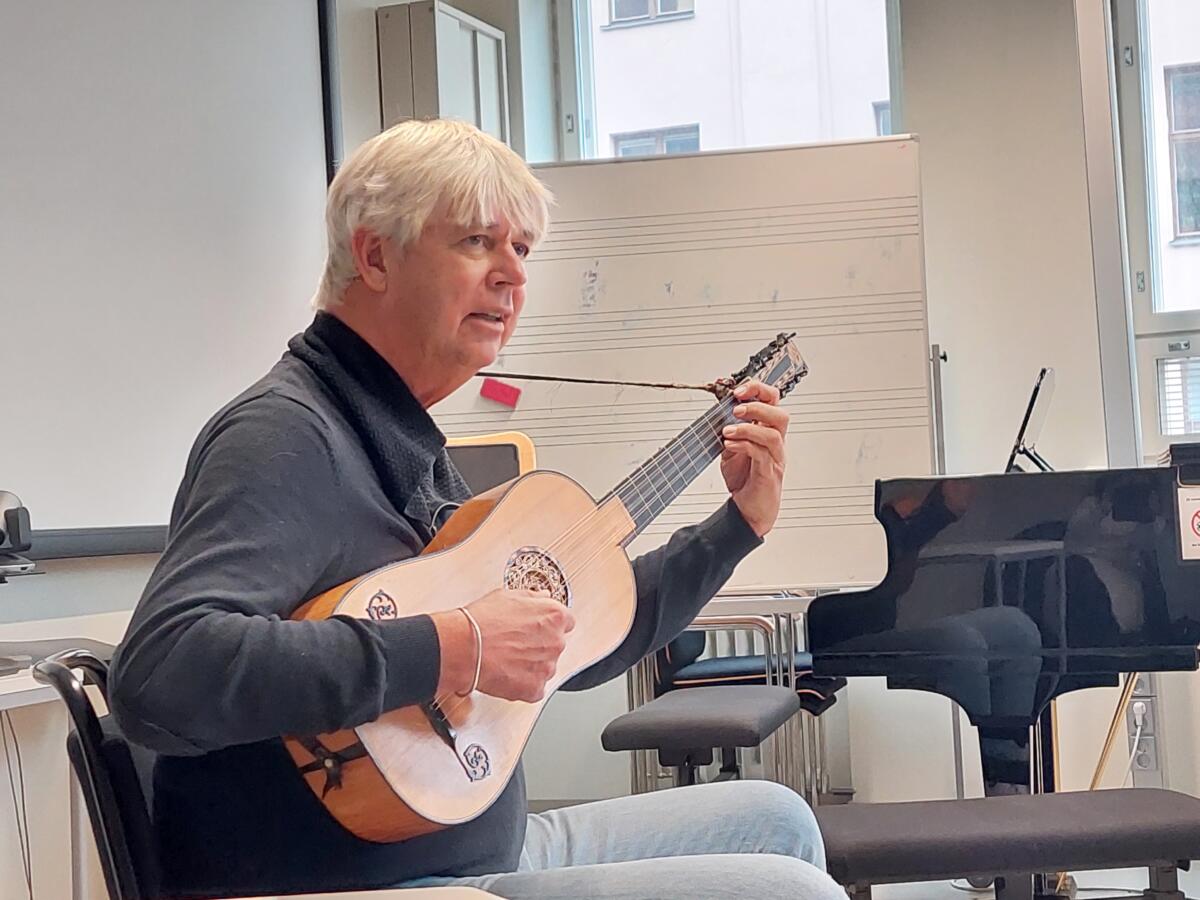Meet the artist: Rolf Lislevand
“With early music I felt I could have the right to find my own identity as a musician”, Lislevand says.

Norwegian guitarist Rolf Lislevand is an esteemed specialist on lute, vihuela, baroque guitar and theorbo. In October 2023, he visited the Sibelius Academy to give a master class on early music.
What topics did you go through with the students during the master class?
We talked about how music works as spoken language. This is a specific “early music kind of thing”. Nicholas Harnoncourt wrote that early music is speaking whereas romantic music is more like singing. And when you speak, you must understand the language. What I try to do is to make the students imaginate the music, the phrases they’re playing; what is being said with these phrases and how can you make your own language out of that in a way. And it’s quite fun for me as well too when that succeeds.
We seem to lose our sight a little bit of being artists as well as musicians and that being artists in certain periods in time implied being radical and going against rules. I feel that today, we tend to speak less about the emotional part of music. For my generation it was natural to talk about originality and emotions.
What intrigued you in early music in the first place?
At the first steps of my career I was playing jazz, electric guitar and classical guitar. I felt a little frustrated feeling that someone else would always do that better, did that better, or knew better what was supposed to be done. That wasn’t the best inspiration, I longed for freedom that I eventually discovered in early music. I came across some very nice recordings, especially from Jordi Saval and Spanish music. It stroke me as not only listening to music, but also dreaming into another time and atmosphere. , because not so many people played this music and there was also a lot of music which no one yet played. I had made very strong affinity to rhythmical music. I discovered that in early music, there is an incredibly refined rhythm – it really has very strong rhythmical energy. So I guess these were the most important elements; freedom, rhythm and, as one colleague of me once said, the right to play your own notes.
What is special about learning early music?
In early music we don’t believe in the score that much: not everything was written there originally. The meaning of writing music in that period – renaissance, baroque for instance – was completely different than today. Back then, basically everyone played their own music, and the whole reason for publishing music or writing music was that it was some kind of testament. The professional musicians knew their music by heart. If you read the paper on the Internet, you would have the updated news but you have to know the essential background from before or from other sources. And the Baroque score is like journalism; you should have the basic information from other sources than the score.
How do you think we can keep early music alive today?
The early music was a 60ies phenomenon. It went together politically with the idea of rethinking culture. The idea was that the standing point should not be the tradition, but that we should put ourselves back to an informed imaginative position. Historically, that was a new idea and it also happened to break with a lot of conventions and a rules that classical music had been using for generations. That kind of new vision has disappeared somehow. Now early music is basically as institutional as any classical music that we wanted to criticize at that period. There’s very little talk about real artistic qualities in a certain sense.
If this material today can propose something different in expression, style and aestethics, it can bcurrent and justified. What is not justified is just to say that early music is interesting because it’s like a musical museum. It should be authentic – not a parody or a copy. Different parts of the world have different music cultures. We do the same thing, but the distance is not geographical but historical – in time and not in space.